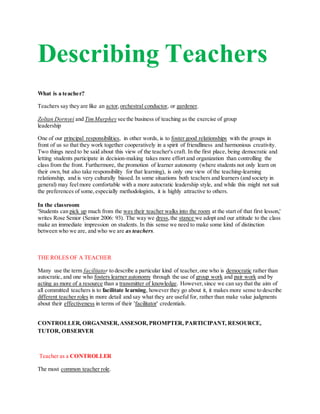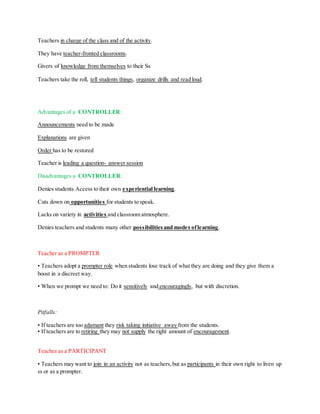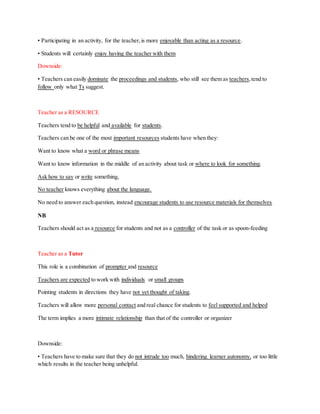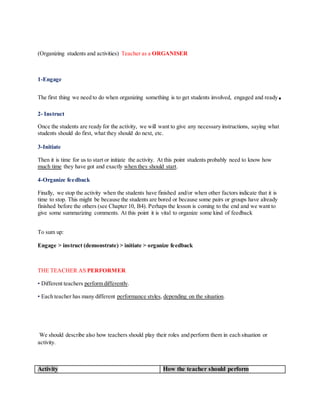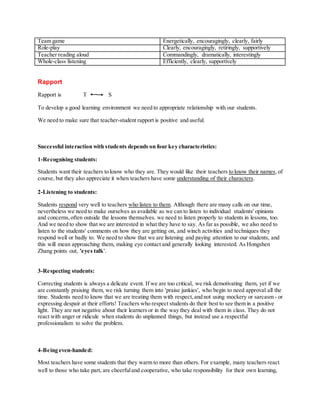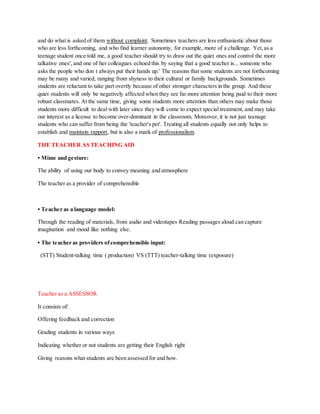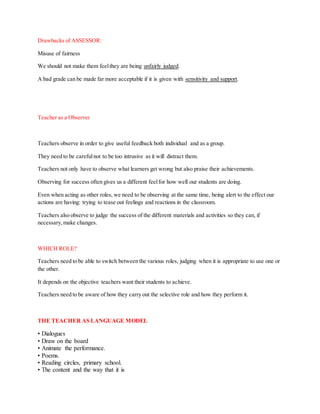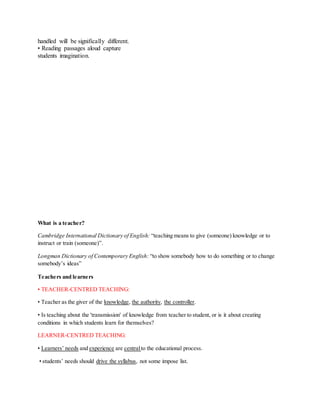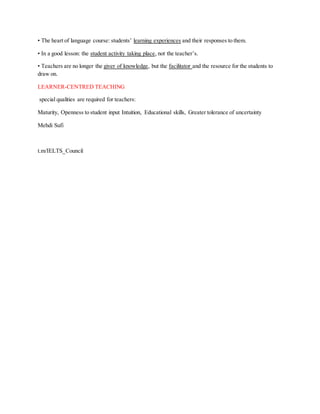The document explores the multifaceted roles of a teacher, discussing how they act as controllers, facilitators, and resources for student learning. It emphasizes the importance of teacher-student rapport and the need for teachers to adopt various leadership styles according to the classroom context. Moreover, it highlights the shift from teacher-centered to learner-centered teaching, advocating for greater autonomy and involvement of students in their own learning process.
